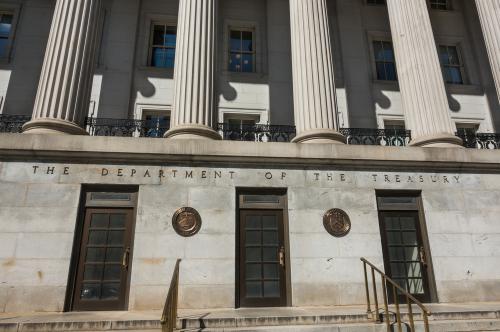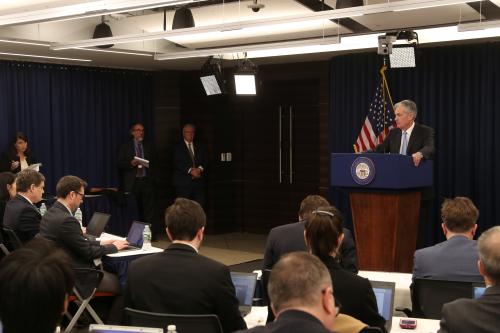Studies in this week’s Hutchins Roundup find that politically connected European banks were more likely to buy government debt of their home country than privately owned banks both before and during the financial crisis, students admitted to charter schools experience substantial achievement gains, and more.
POLITICALLY CONNECTED BANKS IN EUROPE DISPLAY HIGHER HOME BIAS IN SOVEREIGN DEBT THAN PRIVATE BANKS
Filippo De Marco of Bocconi University and Marco Macchiavelli of the Federal Reserve Board conclude that European banks that are government-owned or have politicians on their boards of directors held a disproportionate share of their country’s sovereign debt over the 2010-2013 period. They also find that government bail-outs during the financial crisis were not targeted at politically connected banks, but only politically connected banks used these equity injections to buy more of their own country’s government debt.
STUDENTS WHO PASSIVELY ENROLL IN CHARTER SCHOOLS BENEFIT NO LESS THAN STUDENTS ADMITTED THROUGH LOTTERY
Atila Abdulkadiroglu of Duke and Joshua Angrist, Peter Hull, and Parag Pathak of MIT find substantial achievement gains for disadvantaged students attending Boston and New Orleans public schools that were closed and re-opened as charters and that guaranteed seats for all incumbent students. The achievement gains are similar to, and sometimes larger than, the achievement gains reported in studies of students admitted to charter schools through lotteries. The authors suggest that all students can benefit from attending charter schools, not only those who are highly motivated and self-select into charters.
ENVIRONMENTAL FACTORS DETERMINE TREATMENT STYLES OF CARDIOLOGISTS MORE THAN CARDIOLOGIST-SPECIFIC CHARACTERISTICS
Using data on cardiologists’ treatment decisions for Medicare patients over 1998-2012, David Molitor of the University of Illinois at Urbana-Champaign finds that cardiologists who move to a new health-care market change their practice styles significantly to conform to the local prevailing practice, even if they move mid-career. Environmental factors appear to be twice as important as physician-specific factors in explaining regional disparities in practice styles.
CHART OF THE WEEK: PRODUCTIVITY GROWTH CONTINUES TO BE VERY WEAK

Source: J.P. Morgan
QUOTE OF THE WEEK: “WHAT I WANT TO TALK ABOUT…IS…THE USE OF EVIDENCE IN THE POLICY DIALOGUE,” SAYS INDIA’S CENTRAL BANKER RAGHURAM RAJAN.
“Some may believe that all it takes to convince the body politic of the necessity to choose one policy over another is to present the evidence, complete with careful, well identified tests. Confronted with the evidence, the advocates of misguided policies will simply bow to the superiority of the other side’s arguments and withdraw gracefully. Unfortunately, as many of you who advise policymakers know, this is not how the real world works. Criticism of the central bank using arguments unsupported by evidence is not just an Indian phenomenon. The Bank of England was criticized for laying out the economic costs of Brexit, the ECB has been criticized for doing too much to restore health to troubled peripheral economy financial sectors, and the Fed is under fire for departing from the Taylor Rule. Criticism comes with the territory, and central banks need to make the case for their policies. At the same time, it is important that governments around the world look beyond sometimes uninformed and motivated public criticism and protect the independence of their central bank to act. That is essential for stable sustainable growth.”
— Raghuram Rajan, Governor, Reserve Bank of India
The Brookings Institution is committed to quality, independence, and impact.
We are supported by a diverse array of funders. In line with our values and policies, each Brookings publication represents the sole views of its author(s).



Commentary
Hutchins Roundup: Banks’ home bias, charter schools, and more
August 11, 2016